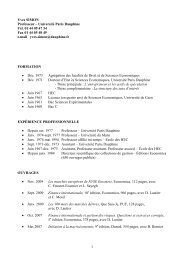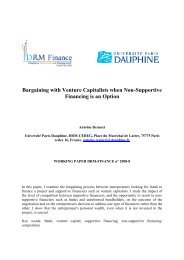Corporate governance and earnings management ... - CEREG
Corporate governance and earnings management ... - CEREG
Corporate governance and earnings management ... - CEREG
You also want an ePaper? Increase the reach of your titles
YUMPU automatically turns print PDFs into web optimized ePapers that Google loves.
(1897, p. 46). He arrives at the conclusion that this “undesirable” <strong>and</strong> “embarrassing”<br />
asset should be eliminated “with all due speed” (1897, p. 45-46);<br />
- on the other h<strong>and</strong>, he also has shareholder’s interests in mind, <strong>and</strong> believes that goodwill<br />
“should not be written off out of profits” (1897, p. 46) because that comes down to<br />
creating “a secret reserve” (1897, p. 47).<br />
To settle this problem, Dicksee first raises the possibility of reducing the “Capital account”<br />
by the whole amount of goodwill (1897, p. 46), although he acknowledges that this ideal<br />
solution is not actually possible, <strong>and</strong> would not be acceptable to lawyers (1897, p. 46). Since<br />
he would rather leave the reserves alone (1897, p. 46), he seeks unusual solutions (such as the<br />
creation of founders’ shares) (1897, p. 47) but is forced to admit that they are probably<br />
“unworkable” (1897, p. 48). Failing to find an optimum solution, Dicksee, in agreement with<br />
Tillyard (1920, p. 106), appears to have finally accepted that acquired goodwill should be<br />
charged to reserves, particularly if the goodwill was artificially inflated.<br />
As in the precedent period, many authors are drawn to this view for practical reasons. One<br />
such is Hamilton (1914, p. 218), who puts forward a theoretical defense of the actuarial<br />
approach (no systematic reduction), before conceding that “as to the practical desirability of<br />
writing off goodwill, I agree”. Another is Lancaster (1927, p. 146), who like Hamilton, thinks<br />
there is no theoretical reason to reduce goodwill, unless it is to reflect an effective loss of<br />
value. But “on the other h<strong>and</strong>, in view of its intangible nature <strong>and</strong> the fact that its value is<br />
always dependent upon the financial stability of the undertaking, it is considered sound<br />
financial policy to write down goodwill as <strong>and</strong> when profits are available”.<br />
Some authors, as noted above, take a clearly dynamic position (Leake <strong>and</strong> Guthrie for<br />
example), but this approach met with little success in practice, as we shall see.<br />
Garke <strong>and</strong> Fells (1922) occupy a somewhat ambiguous position: in theory, they are against<br />
systematic amortization of goodwill, but they consider that in practice it is “desirable to create<br />
gradually a special reserve fund” (see Bryer, 1995, p. 306). There are also some “extremist”<br />
27



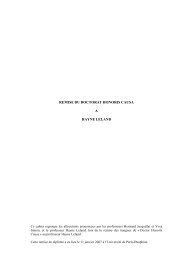
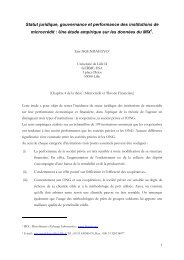
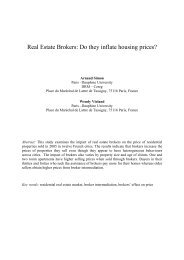
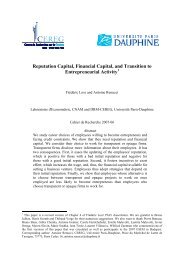
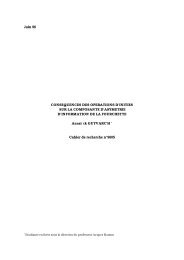
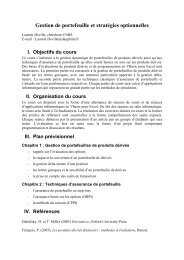
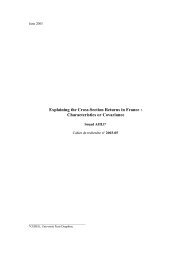
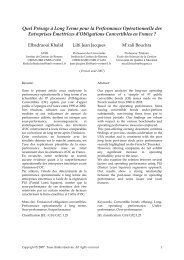

![& 6 ] ^ F ]^ - CEREG - Université Paris-Dauphine](https://img.yumpu.com/33326502/1/184x260/-6-f-cereg-universitac-paris-dauphine.jpg?quality=85)

